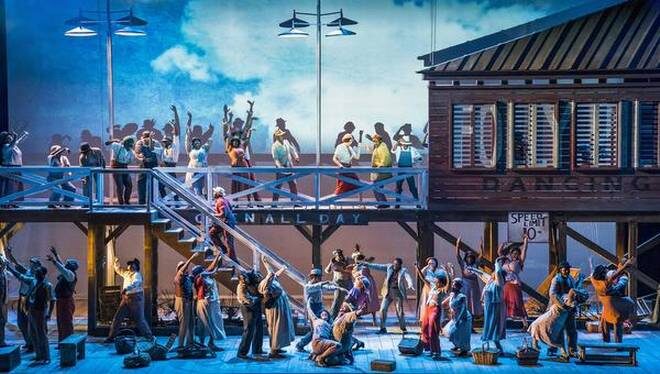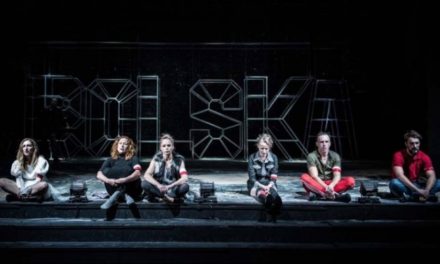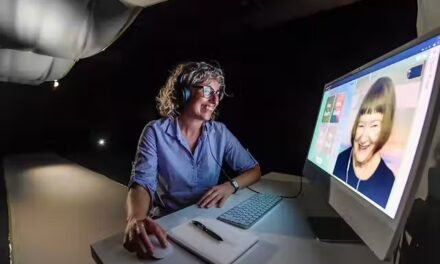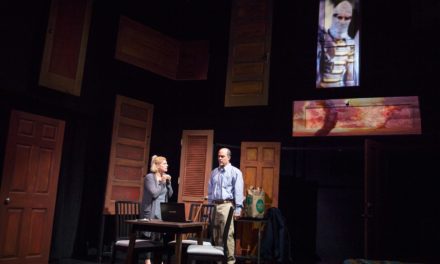While it can never really supplant the vibrancy and vividness of live, in-the-flesh theatre, the showcasing of performing arts in the digital space has expectedly received a fillip over the past couple of weeks as Covid-19 containment measures are implemented the world over. Quarantine, statutory or self-imposed, has led arts-lovers to virtual pastures of congregation and communion where 2G bandwidth or grainy visuals or firewalls might be the only impediments to what are perfectly pleasurable armchair outings to these freshly minted citadels of culture. The new catchphrase of choice is, of course, “social distancing.”
Opera at Home
As the portico sopranos of Italy or the impromptu orchestras everywhere have shown, the humble balcony has become the site of pop-up performances that are not ersatz or fleeting, but richly resonant and an essential ingredient of the perplexing zeitgeist that we have been propelled headlong into. While live arts is never one to cower down in the face of adversity, the latest profusion of cultural live streaming on the Internet allows us new avenues of arts appreciation as performances that are delivered across what was the ultimate degree of separation — the pocket-sized or life-size screen at home — for theatre aficionados globally.
A recital by the Dafne string quartet of the Teatro La Fenice — shared under the hashtag #iorestoacasa (“I’m staying home”) — was staged to a grand audience of none in a massive concert hall that usually houses a thousand. A live feed on YouTube notched ten times as many views.
Anything online has more reach is a given, but there was a certain urgency to this outing that spoke of access and distribution certainly but also human connections, with Beethoven and Borodin for company. The Venice-based opera house has since made available recordings of opulent operas from its current season.
Elsewhere, The Metropolitan Opera began crystal-clear nightly streams of performances on its site for free, with closed captions available and typically, a backstage tour-cum-introduction. This will continue for as long as the opera remains closed. Dubbed “Nightly Met Opera Streams,” its second all-Wagner week will commence on March 23, beginning with Tristan und Isolde, Wagner’s opera in three acts that was composed between 1857 and 1859. The Royal Opera House version ran into 4 hours and 55 minutes, so that’s one-third of a regular day accounted for. All the opera streams will begin at 5 a.m. (Indian Standard Time) and will remain available via the homepage of metopera.org for the next 20 hours. Closer home, in Mumbai, the NCPA’s series of screenings of operas at the Met, sell off fairly quickly despite high rates of admittance, so this new initiative is likely worth a steal for that particular demographic.
Chain Dramatics
A more interactive enterprise is Sofa Shakespeare, the brainchild of New York-based actor Julia Giolzetti. As has been the case with thousands, a play she was about to start work on got canceled due to the coronavirus pandemic, so Giolzetti put up a Facebook post requesting registrations for an unusual collaborative project based on Shakespeare’s Romeo and Juliet, wherein each minute of the play would be created by separate individuals, and the submitted ‘chunks’ would then be pieced together into a full-length digital production that would account for every line in the play.
Giolzetti got entries from around the world, and while Romeo and Juliet is still in post-production, slots for the next announced play, Twelfth Night, have already been filled. Giolzetti exhorts participants to “use animals, children, finger puppets, sing, translate it into another language, wear a silly hat, or just sit on the sofa and read it off your damn phone, I don’t care!”
Giolzetti has herself spent more than two years as part of a self-proclaimed “drinking club with a Shakespeare problem” — New York’s Drunk Shakespeare Society — many of whose members are part of the line-up in the very first edition of Sofa Shakespeare outing.
Also premiering over the weekend is the disarming Social Distancing Festival, organized by the Toronto-based playwright, Nick Green. It specifically curates material from works that have been canceled or delayed or disrupted due to the outbreak. So far, the hundreds of submissions from across the globe have included “clips from rehearsals, scenes done with cast-mates over webcam, recordings from previous workshops, [or] design plans.” The featured work includes a sonic rendering of Canadian Susanna Fournier’s Four Sisters, a new dance solo by Tanzania performing artist Tadhi Alawi, and British textile artist Jane Sanders’ exhibition Stitchin’ in the Kitchen.
This article was originally posted at thehindu.com and on March 20th, 2020 has been reposted with permission. To read the original article, click here.
This post was written by the author in their personal capacity.The opinions expressed in this article are the author’s own and do not reflect the view of The Theatre Times, their staff or collaborators.
This post was written by Vikram Phukan.
The views expressed here belong to the author and do not necessarily reflect our views and opinions.


















